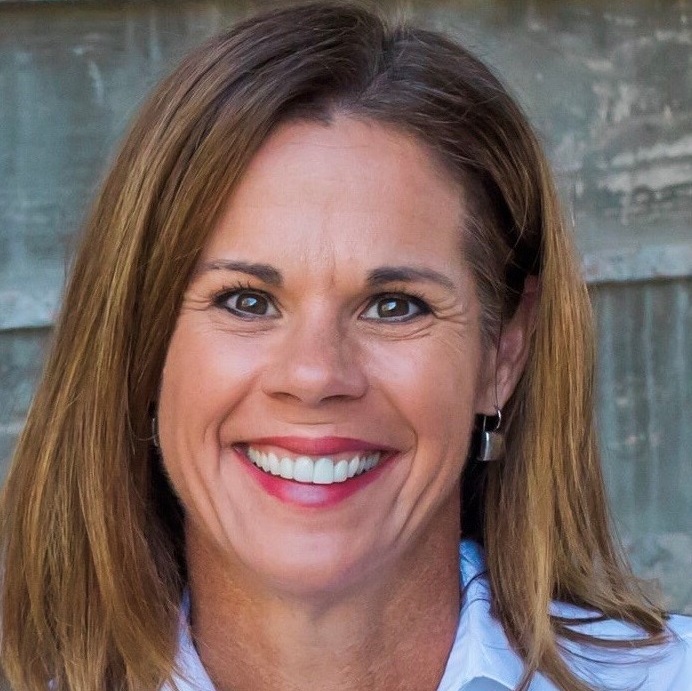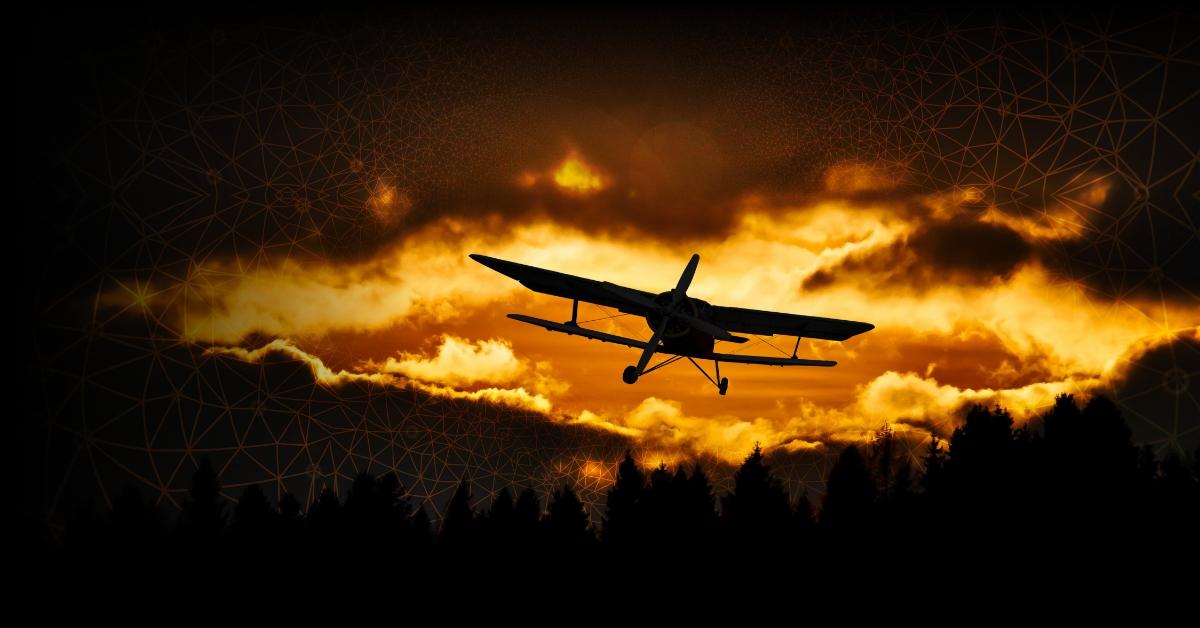Episode 11 of the Medical Affairs Unscripted podcast series recorded by Zipher, now part of Lumanity
As the pharmaceutical landscape becomes more and more competitive, Medical affairs organizations must master the art of employing and developing top level Medical Science Liaisons (MSLs) to enhance and accelerate the competitive advantage. Medical affairs organizations must know how to conduct an insightful assessment of what it takes to cultivate the natural diversity of skills and capabilities of a field medical team, enhance internal peer-to-peer development, and foster external stakeholder rapport.
We invited Christina Tankersley, PharmD, Senior Director Field Medical Team at Sanofi Pasteur, to discuss how to build, train, and guide the growth of a diverse and multi-disciplinary field medical team. Christina’s over two-decade career began in the field as an MSL and now leads the field medical vaccine team. Christina joins Dr Peg Crowley-Nowick on the second season of Medical Affairs Unscripted to share her invaluable experience developing high-performing MSLs, intentionally identifying the key diversities required for constructing a balanced and symbiotic MSL team, and ways to overcome the challenges of unifying team members across the ever-present virtual office setting. Dr Crowley-Nowick also draws on Christina’s vast experience by discussing the potential pitfalls related to the industry’s condensed onboarding trends and the risks associated with driving MSLs into the field prematurely. Lastly, Christina characterizes an MSL journey, the fundamental cornerstone of an MSL development plan and highlights the key components for MSL development, evaluation, and optimization.
Podcast Series: Medical Affairs Unscripted
Hosted by Dr Peggy Crowley-Nowick, in Medical Affairs Unscripted we explore a range of topics related to the strategic role of medical affairs from the perspective of industry experts. Through these conversations with our guests we will share first hand experience to provide the listener with insights and knowledge about the evolving role of medical affairs.
Podcast Transcript
Peg Crowley-Nowick 00:08
Welcome to the second season of medical affairs unscripted. I’m your host Peg Crowley-Nowick, president and founder of Zipher Medical Affairs, a full- service consulting firm. During this podcast we’ll explore a range of topics related to the strategic role of medical affairs from the perspective of industry experts. Through these conversations with our guests, we will share firsthand experience to provide the listener with insights and knowledge about the evolving role of medical affairs. Please stay tuned at the end of the podcast to learn more about Zipher.
I’d like to welcome you today. Today, our guest is Chris Tankersley, Senior Director of Medical Science Liaisons at Sanofi Pasteur. I’m excited, Chris, to have you here with us. I always find that you are a strategic thinker, somebody who brings so much to medical affairs and to MSL teams and thinking about capabilities and growth and optimization of a team. So, it’s wonderful to have you here today.
Chris Tankersley 1:20
Well, thanks so much, Peg, for the invitation to speak with you and your listeners today. I’m quite flattered that you asked me to share my experiences and maybe my perspectives, with the hope that they can benefit others out there.
Peg Crowley-Nowick 1:36
Well, I think it’s very important in our topic today is first to talk a little bit about what diversity brings to an MSL team. And we’re talking about diversity in a broad topic. And the second is to talk a little bit about the career journey for medical science liaisons and what that can mean from building capabilities to what the future could look like for somebody who’s in an MSL role. And I think this is an area that many field-based personnel are thinking about and looking for new opportunities and trying to understand how do they grow in their role? So, it’s really very important. Before we get going, could we just talk a little bit about your journey into medical affairs?
Chris Tankersley 2:16
Yeah, sure. So, I’ve had the privilege of working in this industry for just over 20 years, I started my career, my training is as a pharmacist, and really at the end of pharmacy school, I had a pretty clear vision of the things that I was most interested in, most passionate about. And when I was starting my career, that’s exactly the types of jobs that I looked for. So, I’m going to come back to this because I think having a clear vision of what you want in your career is really important when you think about career development. So, at a young age, in my early twenties, I knew exactly what I wanted to do in my first job. And I was very fortunate to land a position with Cigna Health Care based in Arizona, where I actually could do exactly what I had envisioned that I would be able to do. So, that’s another key thing I’ll come back to is really — what is the potential? So, I started my career as a clinical pharmacist, I worked in an outpatient healthcare setting. At the time, I really specialized in cardiovascular disease and thrombosis. That was clinically what I was the most interested in. And so, yeah, I worked in that setting frontline with patients and with health care providers for five years at the time, and I was in that job, really the MSL role. This is you know, late 90s, early 2000s was really sort of becoming an up-and-coming career. And I have the privilege of having a boss and a mentor at the time that himself became a medical science liaison. And it was really through that personal connection. And I saw what he was doing and the things that he was doing. And I thought, okay, my next career step, really, I should really take a serious look at this, because I really like talking about science. I’m kind of a nerd that way. So, if someone was paying me to talk to other people about science, I thought, well, what could go wrong? I mean, that sounds like so much fun. I felt like I was a little bit insulated. Like I knew all of our health care providers in our healthcare system, but I didn’t know anyone externally outside of our medical centers. And so, I was really wanting to meet and understand, you know, who were the other key influencers in healthcare in my territory. And so, I interviewed, and I had the opportunity to become a medical science liaison. So, I started my career as a medical science liaison with Sanofi. So, I’ve been with the same company for almost 21 years now, which is unusual…
Peg Crowley-Nowick 3:26
It’s very unusual.
Chris Tankersley 4:58
But I’ve had multiple jobs in that time. And I think that’s why I’ve been able to stay here as I’ve been able to grow my own career within this company. So, I was a medical science, frontline medical science liaison myself. And I did that role for just under seven and a half years, I still say it was one of my favorite jobs. And to be honest, at the end of my career, if I went back to doing it, I would be very happy doing it. I really loved being able to keep on top of science, being able to meet with key opinion leaders. You know, I used to joke with my husband, “I met so-and-so…” and he was like, “Who is that?” That’s the person that wrote these guidelines. And he wasn’t as impressed as I was, but it was in that role that I realized, okay, I understand what it takes to be good at this job. And I’m not saying that in an arrogant way. I just felt like I had success. And so, my next aspiration was, how can I teach other people that so after being a medical science liaison, I became a regional manager of medical science liaisons. And probably one of my proudest accomplishments is that I was able to take what I knew and learn and practice in the field and teach that to other people so that they became national award winners. So, I was a regional director on the cardiovascular team at Sanofi for eight years. So, I spent almost 16 years in the same business unit, and then had the opportunity to move transversely into a senior director position in our vaccines business unit. Again, this was a growth opportunity for me because while I knew what it took to be an MSL, I knew how to manage MSLs, I really didn’t have any experience in vaccines other than, you know, my own personal experience. The business model is very different for vaccines. So, I was it was a growth opportunity for me as well. So, in July, we’ll have been in this position for five years. So long answer, it’s been a long career, but it’s been really full of rewarding experiences.
Peg Crowley-Nowick 7:01
Well, it’s an amazing story, because nobody stays in the company that long. And when you do, you bring so much value to the organization because you have the history, you know how they do things, but you can bring new things in because you’ve earned their respect over the years. So, it puts you in a very powerful and amazing position. And that’s, that’s so nice. And I have to agree with you. Because I was an MSL, when I first started in pharma, I can’t think of a better job. Even though I’ve done many things in my career. I still wonder why did I ever leave that job? That was the perfect job.
Chris Tankersley 7:33
Almost ask myself that on a regular basis because it was so fun.
Peg Crowley-Nowick 7:37
It was great. And I would come home very happy just like you or you’re sitting with your husband. Before we get going. What was your aha moment that you found in being in medical affairs and being in the role?
Chris Tankersley 7:51
Yeah, so I think, for me, my aha moment, there’s been many over the years, right. And so, a couple that really stand out is I remember as an MSL, once I was asked to do a grand rounds presentation at one of our heart hospitals here. And I remember actually was a bit nervous to do it, honestly, because I’m thinking this is a pretty high caliber institution with a lot of really intelligent people that went to Ivy League schools and have published hundreds of manuscripts. And I thought to myself, “What in the heck am I going to tell these people?” And the aha moment for me was, well, they were an expert in things that I knew nothing about. I was an expert on this particular topic, so much so that they really saw me as a peer, they saw that I could actually teach them something that maybe they didn’t know because this I lived and breathed in this particular therapeutic space, whereas there was only a small part of what they did overall. So as an MSL, I think an aha moment for me was that I really am very, the information that I have is really valuable, even to people that I respect, I think, maybe have more experience and more training than I do, there is something that I have that they want. And that was a wow, I just kind of blew my mind. And I actually still can picture standing in this presentation thinking this is pretty awesome. So, that was an aha moment. For me. I think another aha moment that I had as a manager and as a coach, was the moment that someone on my team went up for a promotion. And you know, I had been working with this individual for, you know, a couple of years to help them prepare for the promotion and we had done pretty much everything, right? But you know, sometimes just things don’t work out for a variety of reasons. And the MSL didn’t get the promotion. And you know, I remember very explicitly going back to that person and saying, it’s what you do next, that will really demonstrate your readiness for this position the next time it comes around, you can go back and have a pity party, and you can be down on yourself and really resent the organization or resent the leadership team. Or you can go back and say, I’m going to prove you wrong, I’m going to show you why I am deserving of this promotion. And that particular person actually went back into the field and knocked it, I mean, they were already performing at a high level, I mean, literally took it up to a level that I’ve never seen before. And the reward was actually, the next time there was a promotion opportunity. They got that job. And so, as a coach, it was an aha moment for me is that, you know, there are these moments in someone’s career where they really need the advice of a coach, and it really changes the trajectory of their career. And for me, it was that moment of, you know, seeing him take my advice, putting it into place, and then seeing the rewards because it was a down moment for this individual. And they were pretty discouraged. And so, I was really proud of that. And then, my most recent aha moment was, you know, moving into this job, you know, sometimes after, you know, almost 20 years, you can get a little arrogant thinking that, you know, hey, you know everything and you know, everyone. And moving into a different business unit, it was a bit scary for me, I was very comfortable where I was, and I remember my first day in the vaccines business unit at Pasteur. And I remember feeling I was like, it was like, the first day of school, I went into the lunchroom. And I didn’t know anybody I didn’t have anyone to sit with. And I remember that, you know, sort of feeling vulnerable. And I hadn’t felt that way in a long time. And for me, that was, that was a sign that, you know, sometimes when you feel uncomfortable or vulnerable, that’s when you’re going to grow, right. And so that was an aha moment. So those are just a couple of examples.
Peg Crowley-Nowick 12:11
Those are great examples because they do a couple of things. They remind me of what it was like to begin in the MSL role and be able to give a presentation that people are listening to and really get something from or to have a conversation with someone and explain what an MSL knows and what the role is to someone and then have them start having real peer-to-peer conversations with you. And you recognize the great value to both parties, when you can reach that point and have those peer-to-peer conversations. But the second part of it is just as important is that coaching as we move up in our careers, learning to mentor learning to coach and continuing to do that, even when you’re busy and you’re tired, and you’re getting all the pressure from above to make sure that that gets incorporated in because it builds a stronger team. It helps the company, and it makes somebody else really succeed. So, as a great MSL and a great coach, I think that those are terrific aha moments. And thank you for sharing those.
Chris Tankersley 13:10
Sure.
Peg Crowley-Nowick 13:11
So, let’s move on and talk about our topic today. So, let’s start off talking about diversity in an MSL team and what that means to you and how you’re thinking about it. And I think it’s an important topic, and I liked the way you’re thinking about it on a team.
Chris Tankersley 13:29
Yeah, sure. So, I would say diversity and inclusion are really important topics to me as they should be to everyone. And I know that they are, but maybe I can share a little bit about what I think diversity really means. Of course, it may be obvious, but I’ll just say I don’t think of it as checking boxes, right about having a percentage of people on my team that represent different things. I use this analogy a lot with my team as I really think of my team, like a baseball team. And what I mean by that is that I want to build a team that has diversity in a lot of different ways. I want a team that, you know, the best baseball teams are the teams that have people that are the best at playing the positions that they’re in. And so, if you have a team full of pitchers, or a team full of catchers, you’re not gonna win a game. And so, to me, I think about building an MSL team, I think about it very intentionally. I really look at kind of do a survey and analysis of my team and I think about where we maybe have gaps. And those gaps can be across a variety of different areas. So, when I came to this team, I had the opportunity to expand the team. And of course, there’s been some transitions over the five years that I’ve been here, and so some of the things that particularly that I’m, I’m interested in, and I’ll talk a little bit about each of them. So one is, you know, some of the obvious things that you think about in terms of diversity. So, I wanted to have a team that was relatively gender balanced, because I do think that men and women think and see things a little bit differently. And also, again, thinking about, you know, our customers, the healthcare providers that we’re engaging with, obviously, they’re of mixed genders. Ironically, actually, most of my team was female. And so, I know there’s a lot of talk about women in the workforce, but actually, I needed more men on my team. And so, you know, so one of the things that, you know, that I thought about was having some gender balance, you know, just so that we, you know, we just approach things a little bit differently. And I am a female, I don’t always have that perspective. I also wanted diversity in terms of the ethnicity of my team. So again, I’m thinking about the health care providers and the patients in our community. And I wanted my team to resemble, you know, our healthcare providers and the people of the United States. And so, my team, actually, I think, at last count, they originate or have connections to eight different countries in the world, from Africa, to India, to Mexico to Europe, I mean, we really have almost every corner of the globe represented in my team. That’s amazing, I’ve never really been part of a team that’s that diverse in terms of their cultural ethnicity, I also think about diversity in terms of their academic experiences. So, my team, they’re basically all terminal degrees. But the audience that we’re talking to is mixed, right? We have clinicians, and we have researchers. And so, my team is actually pretty balanced between PhDs and clinicians. And what I find beneficial about that is that, you know, sometimes what they focus on or their expertise, right is very different. So, the PhD, they’re not always clinically, as familiar with patient care, or patient management, or even the names of different drugs, right. And so, they can learn from their clinician peers. What I found is some of the clinicians are not as verbose or clearly understand as well, the intricacies of research, or maybe the details of, maybe it’s the mechanisms of action or something. So, they really learn from one another. And I find that to be really beneficial. I also looked at, you know, what kinds of previous employment did they have. So, I have people that were clinical pharmacists in infectious disease, I have people that were coming from public health, I have people that are coming from laboratory sciences, because all of those are within scope for my MSL team, which focuses on vaccines. And so, what I found is the benefits of having this diverse team is really on the team culture. Because the team knows Oh, hey, if I have a laboratory question, or a surveillance question, this is the person on the team that I’m going to go ask that question to, or if I want to know about antimicrobial resistance, I know that this particular MSL that was their previous role, and so I’m going to go talk to them. So, they really tend to rely on one another and really build a strong culture, because they recognize the diversity in one another. And where some people have strengths, other people might have weaknesses. And to me, by being intentional, and building a diverse team in all areas of diversity that you can really think of, it really makes us strong. Because you know, everyone brings their own value to the team. And so, I’ve really enjoyed seeing that happen. This is by far, I think the most diverse team I’ve ever had.
Peg Crowley-Nowick 19:24
And it was intentional, though.
Chris Tankersley 19:26
Very intentional.
Peg Crowley-Nowick 19:27
It has to be intentional to accomplish what you’re setting out to do.
Chris Tankersley 19:39
Exactly. Even when I talk to my managers, when we have an open position, I say, “Okay, let’s look at your team composition currently, what are you missing?” And as we’re screening CV’s, that’s what we’re looking for is that, hey, maybe we’re a little bit heavy on the academic side, and we could really benefit from a clinician or vice versa, or maybe we are not gender-balanced enough or, you know, maybe we have a lot of younger people on our team. Maybe we need some people that are more experienced. So, we’re very intentional even going into the recruiting process about what it is that we’re looking for, because you get a lot of applicants. But I think we try to be very mindful of that.
Peg Crowley-Nowick 20:13
Well, and I think it’s important because then you’re trying to build a winning team, and you’re thinking about your clients, and who you’re engaging with and what they need. So, that’s equally as important. I think lots of times, we’re just in a hurry to build a team — Pull people together, oh my God, we were able to hire them all, get them trained, and get them out in the field. And that’s not going to lead to the kind of success that you need. Because for each brand or for each, I don’t want to say drug, but it could be for whatever disease state you’re working in, there may be unique needs. And you really need to think about and plan on that on that side. Let me ask, how do you, you now have a team that brings all these different aspects to the table — How do you make them into a team when they’re all in a remote setting? And that you really need to get them to know each other? What are some of the techniques you use to make sure they feel comfortable reaching out to each other and turning for their expertise?
Chris Tankersley 21:10
Yeah, so that’s a great question. It is, I will admit, a lot more challenging, you know, since the pandemic where, you know, up until like, December of last year, there’s quite a few people on the team that had never ever met each other in person, we’ve only seen each other through Zoom. And so, it is challenging. Because I do think, you know, there’s a personal connection that happens when people are physically together. And it’s not just knowing who you are, professionally, but it’s who you are as a person, right? What are your interests? What are your hobbies, you know, just, there’s just so many intricacies of personality? And I always joke, my team thinks I’m a little bit of a hippie, but I always say that there’s an energy that’s really transferred, when people are in person, you know, you can call it anything that you want. But you know, you don’t always get that from Zoom. So, first of all, I’ll say it’s challenging. And I would say, you know, maybe my own hypothesis about why we’ve seen some of the turnover that we’ve seen over the years, not just in our business, but in other businesses because that human connection piece is maybe missing. You know, in the past, you never wanted to leave your job because you felt like you were leaving your friends and you were leaving your family and you didn’t want to let them down. And now it’s a little bit easier because people are a little bit removed. So, one of the things that we’ve done is, first of all, when we onboard somebody into the team, I always have this analogy that it takes a village to raise an MSL and you know, it’s kind of a spin on raising a kid. And I don’t mean, obviously, I have people that are not kids, right when we hire them as MSLs. But it really means that it’s really the responsibility of the entire team, to onboard an individual into our team. And so, what do I mean by that? Well, the way that we onboard people is that we give them exposure to almost everyone on the team during, you know, 12 to 16 weeks of onboarding. So different people on the team will moderate some of the training sessions or will be assigned to them as a mentor, or will, you know, teach them about the skill side of being an MSL, but you know, they’re not just assigned to one mentor. And that’s the only person that they go to for onboarding or only their manager. Literally, they will have a connection point with every single person on my team during that onboarding phase. So that’s one thing that we do so that by the time they are an MSL, and they get in the field, and they have a question, they already know the MSL in New York and are comfortable to reach out to them and know a little bit about who they are and their background kind of coming back to that diversity. Okay, right. Now this person has experience here, so I’m going to ask that question. And they’re more comfortable to do that. So that’s, that’s one thing that we, that we do, as well. I also try to mix up the teams a little bit. So, when we’re working on project teams, I try not to, you know, always go to the same people to do the same things, but really put them in situations where they’re working with people that maybe they haven’t worked with before because it sort of builds that that personal…
Peg Crowley-Nowick 24:41
Like sitting next to somebody different at the dinner table.
Chris Tankersley 24:43
Exactly. And I do do that too. Like even when we’re together. I’m like, “Okay, I want you to sit with somebody that you’ve never sat with before.” And we’ve done really fun team builders, you know, to get to know one another individually but you know; Like I said, it is a little bit more challenging now that we’re getting back together, I think I do see the difference in the energy when we’re together. And you know, just people chit chatting and high fi…
Peg Crowley-Nowick 25:12
It’s that shared experience, it’s something crazy that happens. And that becomes the story the team tells for years to come.
Chris Tankersley 25:18
Oh, for sure.
Peg Crowley-Nowick 25:18
And other people know the history and think, oh, I wish I’d been around back in those days.
Chris Tankersley 25:23
Exactly.
Peg Crowley-Nowick 25:23
But it’s so important I should have asked earlier. But how big is your team?
Chris Tankersley 25:29
Oh, sure. So, thanks for asking. So, yeah, so we were able to build the team. So, right now we have eighteen medical science liaisons that cover our vaccine portfolio, we do prioritize some therapeutic areas over another. I also have two individuals on my team that are not traditional MSLs. It’s called medical value and outcomes directors and they really are MSLs, but with large, organized customers, so, their focus of the types of people that they interact with is more like GPOs, PPNs, large health systems for us and vaccines, the retail, the decision makers for the large retail chains. I have three regional directors that for which those field folks report into, I do have a dedicated trainer that helps organize not only our onboarding, but our ongoing training. And I have a senior project manager that is, yeah, she helps me with all of the technology, big project management sorts of activities.
Peg Crowley-Nowick 26:35
So, you have a really solid team that, if I was to go and do consulting for somebody, the size of your team, the roles that you have on your team, except for the value piece, that’s, that’s a little different. Sometimes you see that in the MSL team, sometimes that’s presented in a different group. I like the idea that it’s part of your group, I like the idea that they have a little bit more stability with the rest of the team, also probably, to give them other support that they probably need. But the size of your team, the roles that you’re talking about all equal, what I would recommend to everyone. And even your training program, that 12 to 18 weeks, 18 weeks might be a little bit longer than I see with most clients. But I see that 12 weeks is kind of typical, but what I’m hearing these days is people are trying to shorten that. Bring them out into the field in 4 weeks and into a complicated scientific world where people are expecting you to act as a peer, and they’re not given the time to even learn or become experts. What are your thoughts on that?
Chris Tankersley 27:37
I think it’s a big mistake. And I’ll tell you why. So, maybe to back up I would say the reason that our onboarding might be a little bit longer than the typical 12 weeks is the portfolio that we support. So, some of my colleagues may have one or two products, but Sanofi Pasteur makes over twenty-two vaccines. And so, there’s a lot of content. Now, obviously, we prioritize some which are more proactive, and others are reactive. But we are representatives of our company and our products. And I never want my MSLs to be caught in a position where they’re being asked about a product that maybe isn’t a priority for us. And they have no idea how to respond to that question. We are ambassadors and medical representatives of our company. So, I do want to make sure they at least have foundational knowledge across a very diverse profile or portfolio. So, that’s maybe why ours take a little bit longer. But to your point about sort of condensing that, that onboarding experience. Let me tell you why I think it’s a mistake based on my 20 years of experience. I feel like what our key opinion leaders are looking for is value in the time that they spend with anyone outside of their patients or their work that they’re getting paid to do, you have to be of value to them, they have to see you as a peer. And one of the biggest mistakes that you can make, you know, you only get one time to make a first impression. And what I would never want my team to be in the position of is feeling like they’re unprepared to have a conversation with a key opinion leader. Now, having said that, you can have the best training curriculum ever. And you’re going to always be put in a situation where there’s a question that you’re asked that you don’t know how to respond to. But maybe it’s not that you don’t have the answer is that you have the confidence to know where to get the answer or the confidence to say that’s a great question. Let me come back to you and really be able to come back to them. So, I think first impressions are so important, because if you don’t make a good first impression, the probability that the thought leader is going to give you a second, third or fourth time to do that is very, very low. Now I will say I think you can have somewhat of a hybrid approach. So, I have heard feedback from some of my MSLs that have gone through onboarding that, like, “Okay, I’m a little burnt out from studying for, you know, 16 weeks straight. Is it possible that, maybe in the middle here, I can spend some time in the field with MSLs that are already trained? Or I can go out and do some introductory visits, but maybe have an experienced MSL with me, you know, as a support system, in case I do get, I am a little bit unprepared.” So, we’ve tried to really incorporate some of those field experiences throughout that onboarding experience, so that they don’t just feel like they’re back in school, and they’re studying and reading and
Peg Crowley-Nowick 30:43
Right.
Chris Tankersley 30:43
You know, listening. So, I understand it gets a little bit monotonous. And plus, I think, the context of okay, why are we learning about this? And how is that relevant to the conversation? So, seeing that in the real world really helps solidify some of that academic onboarding.
Peg Crowley-Nowick 31:00
I think so too. It also gives them the opportunity in a safe space to hear the way the conversation goes. And in their mind, they can try to work through that even if somebody else is doing it, they’re hearing it and realize how much preparation they have to do before they enter that office and start having a conversation. So, this is a nice way to transition into the career journey for an MSL, if they’ve gone through the training. And now they’re out in the field, and they’re starting to already think about what is my career journey? And what capabilities do I need to learn in order to move forward in this role? I’d love to get your thoughts on the journey for an MSL?
Chris Tankersley 31:36
Yeah, so first of all, I’ll give you the caveat that I literally talk about this often and for more than, you know, a few minutes. So, I’d be happy to talk more about this separately at another time. But you know, sort of the quick version of this is, I’m very passionate about career development. Because I feel like without it, you’re sort of, you’re sort of wandering around aimlessly. And what I mean is I like to use this analogy, you can tell I use a lot of analogies. But for me, I always think about career development, like a map, like a roadmap of your career. And one of the first fundamental things, if you’re thinking about your GPS, right, and you’re thinking about where you want to go, whether that be in your career or to a destination, first you have to know where you want to go. And I feel like that’s the biggest mistake that a lot of people make is that they don’t take the time to really figure that out. And so, sometimes they don’t know where to look, right? They don’t know what career options are available to them. And I always tell people, before you start this process of writing a development plan, you really need to take the time to understand what you are good at? What do you enjoy doing? What do you want to do more of, you really need to have a destination in mind. Now, of course, the destination can change, right? You may start down the road, and you go, “Oh, this is not at all what I like. And I want to change course.” Well, just like navigation, you can have a detour, you can change directions, but at least you start out by having a destination in mind. And so, you know, people really need to take the time to self-reflect, and to investigate. So, I tend to be a strength-based leader. That’s my leadership style. And a lot of people think about development plans and the opposite way they think about well, what are the things that I’m not good at? And I need to get better at? I have a completely opposite opinion of development plans. My perspective on development plans are what are the things that I’m really good at? And how can I do more of that? Because also, if you think about employee satisfaction, people like if you’re good at something, probability is you like doing it. Right.
Peg Crowley-Nowick 34:07
Right. I don’t want to do the things I’m not good at. That’s no fun.
Chris Tankersley 34:09
Why? Why would you write a whole plan? That sounds miserable.
Peg Crowley-Nowick 34:13
Yeah. Fill all those gaps.
Chris Tankersley 34:15
I’m terrible at this. So, I’m gonna spend a lot of time doing this with the hope that either I enjoy it more, or I get better at it. So, the first thing that I always tell people is to really take an inventory of what are the things that you’re good at? What are the things that you like to do? And how can you do more of that in your career? For example, like growing up, I was a coach. I was a swim team coach. I coached young athletes, I always liked coaching. So, I knew that coaching was something that I really enjoyed doing and I wanted to do more of, so as I was thinking about my development over the years, I thought, how can I do more coaching and sometimes that’s being a manager. It could be going into a learning and development type of job, right? It could be a consultancy type of job. But I just know that I really like coaching. And so. So, for me, that’s sort of the direction that I wanted to take. So, my first piece of advice is to really set a destination and take the time to do that inventory. And when I say set a destination, in a lot of ways I tell my team, I want you to be pretty specific. So, if I say I want to go to the desert, well I could end up in a lot of different places, but I live in Arizona. So, I say I want to see a Saguaro cactus. I know there’s only a certain place in the world where I can see a Saguaro cactus. I’m setting a destination that, again, is pretty specific. So, I always have my team write a vision statement at the top of their development goals. If you achieve this destination, what does it look like? Describe it to somebody, you know, if you’re thinking of a map, and you look around, like what does that actually look like? Because then you’ll know when you’ve gotten there. So, if you write a career plan, and you don’t have a destination with a clear description, how will you know if you’ve arrived. So, that’s you know, you have to do a self-inventory about what you like and what you’re good at. And then you have to set a clear destination with enough specificity that you know, when you’ve accomplished it, and then just like a GPS, you know, we do the 70/20/10 rule where 70% of your development is really on actions, right. And again, going back to my analogy about GPS, those are the directions right, that tell you to turn left or turn right, to keep going one hundred more miles, those are the activities, right? So, you want to make sure that every activity that you’re doing really aligns and supports that vision, right. So, you know, if I’m trying to go to Arizona, and I’m coming from Florida, it’s not going to take me up to Chicago, right? It’s going to keep me on a track, that’s, that’s, you know, going the right direction. So, you want to make sure that every action item, every yes that you say to an extra project that is outside of your scope of responsibility is in the direction that you’re trying to head with your career, right, or the experiences that you need to have in order to get there. So, you know, by having that clear vision, you can very clearly outline the action items, then just like GPS, if you need feedback, right? That’s the 20% feedback. If you make a wrong turn, I’m pretty sure that your GPS is going to say a wrong turn, you need to, you need to do a U-turn, right? If you don’t have somebody that you’re getting feedback from, you have no idea whether or not you’re on the right path. So, feedback is really important to check in with somebody whether that’s your manager, a peer, anyone really to make sure, am I still headed in the right direction? And if not, how do I course correct. And then the last piece is, obviously you need to know how to drive a car, right? So, there needs to be some training that’s involved to help you get there, if you’re not training, you’re not growing, you’re not learning, you know. But it shouldn’t be the focus of your development plan, it shouldn’t be a list of courses that you’re going to take there will automatically get you, you can know how to drive, but if you don’t get in the car and go, you’re never going to reach your destination. And so, you know, again, I see a lot of people write development plans that are like, I’m going to take these fifty courses.
Peg Crowley-Nowick 38:32
Classes, mm-hmm.
Chris Tankersley 38:32
Yeah, I’m going to get my MBA, I’m going to do this or that. And I’m like, yeah, how are you gonna use that knowledge? That’s really where the magic happens.
Peg Crowley-Nowick 38:41
You’ve laid out some fantastic plans of how you would walk through those four steps. Let me ask this because one of the things that I’ve seen is that it’s hard, especially for somebody who’s just come into the MSL role to understand the difference between that new MSL who’s doing great job doing well in the field, not somebody who’s having troubles with this role, but somebody who is succeeding in the role to understand the difference between them and the person who is always the go-to — A senior person comes to town, we call on this person to go out in the field with them, when we need somebody to help provide insights, maybe into a development program, we go to that person. It’s that gut feeling, you know, that person has something different than what I’m currently doing. But I don’t know how to get there. So, we’ve spent a lot of time building our capability continuum so that you understand the difference when you start in the role. And you start to move through what some of the characteristics are of the person who’s just starting out who’s very good. And the person who’s really the game changer. And we find that that’s a great way to coach off of it because it lets people understand the differences in the continuum. It’s not about years in the business.
Chris Tankersley 39:56
No. No.
Peg Crowley-Nowick 39:56
A lot of people think, “Well, I’ve been here 15-20 years, I’m a game changer.” That’s not the case. It’s characteristics of what you do and the actions you take. And the way you respond to things that fit with the culture of the company because it’s all somewhat unique to the company you’re working for. That really define the game changer MSL. And in my world, I like to have a number of Game Changers so that they bring along other people. And, I like to have a path that I can lay out and people can easily see the differences that are important within the company that I’m working at that would get me to the game changer. Do you have a system like that? Are you using anything like that?
Chris Tankersley 40:35
Yeah, it’s a great point. First of all, I completely agree. It’s not about the years of experience. It’s about what you do in those years, right. And so, I’ve had people that have been promoted within one year, and I’ve had people that have been here for 10 years that have never, never been promoted. So, you’re absolutely right, it’s not about that. I don’t take credit at all for this work that’s been done, it was actually developed by our global medical capabilities team. So, we do have a competency assessment tool. And we evaluate competency behaviors across a proficiency continuum. So, to your point, you know, sort of that beginner level all the way, literally, we call it a game changer.
Peg Crowley-Nowick 41:21
Oh, you do?
Chris Tankersley 41:21
And so based on your role in the company, whether you’re an MSL or senior MSL, or an office space Medical Director, the expectations of your proficiency across these different dimensions is different. So, for example, if you’re a newer MSL, our expectations of how you know the healthcare landscape is maybe different than somebody that’s a senior MSL or a medical value and outcomes liaison. So, we do try to align them really to the roles. But also, I think it gives some clarity for the team. It says, “Okay, let me do a self-assessment about where I am today across these different proficiencies. And then where do I maybe have some gaps?” And focus their development on filling those gaps with action items that give them the experiences that they need to attain that level of proficiency. So, we try to make it as clear as possible, so that people know it’s okay to be where you are today.
Peg Crowley-Nowick 42:27
Exactly.
Chris Tankersley 42:27
Then some clarity on what the next level really looks like? It’s not some abstract theory, it’s actually written down. So, we try to do that as well. The other thing that I would advocate for your listeners as well is, you know, again, I believe that the universe is conspiring to help you. What I mean by that is that if you want to get to that level, if you want to be the person that is asked to give this type of presentation or to do a certain thing, you need to raise your voice, you need to raise your hand, because I can’t read minds, your manager can’t read minds, either. So, you know, I read every development plan for every member of my team. And I know for example, Peg, if you’re really interested in a specific area, when that opportunity comes up, I’m going to bring it to you because you’ve raised your hand, and you’ve told me that this is something that you want to do. If you don’t tell me, I have no clue. So, really be your own advocate, you know, the universe wants things to happen for you, but if you don’t say it, the probability that it’s going to happen is very low. So, you have to know what you want. You have to tell people what you want, and your likelihood of success is much higher.
Peg Crowley-Nowick 43:47
Well, that was a fabulous point to end on, because you’ve taken them through thinking about building a team, training a team, building their career. And I think that there’s an awful lot of people who will listen to this and be really excited to one. probably hear a little bit more, and two. maybe incorporate some of the ideas and the actions that you’ve given them into their teams and into their careers. So, thank you so much for sharing this information with us today.
Chris Tankersley 44:16
Well, thank you, it’s been fun.

Episode guest
Christina Tankersley, PharmD
Senior Director, Field Medical Team, Vaccines at Sanofi Pasteur












